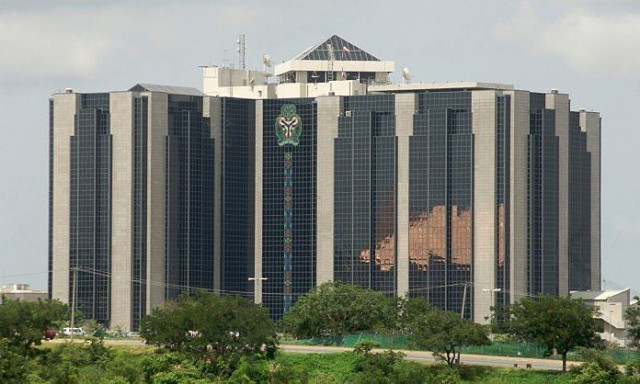The Central Bank of Nigeria (CBN) has kept its monetary policy rates unchanged and reaffirmed its dedication to conventional economic approaches aimed at enhancing stability.
During a post-Monetary Policy Committee (MPC) press briefing in Abuja on Thursday, CBN Governor Olayemi Cardoso announced the decision to maintain the Monetary Policy Rate (MPR) at 27.5 percent, which follows a previous increase of 25 basis points from 27.25 percent. The central bank also preserved the asymmetric corridor around the MPR at +500/-100 basis points.
Moreover, the Cash Reserve Ratio (CRR) for Deposit Money Banks has been held steady at 50 percent, while Merchant Banks will continue operating with a CRR of 16 percent.
Cardoso commented: “At this meeting, the Monetary Policy Committee expressed satisfaction with recent macroeconomic changes expected to positively influence price trends in the near to medium term.
These developments include the stability seen in the foreign exchange market leading to an appreciation of the exchange rate and the gradual decline in PMS prices. Nonetheless, the committee expressed concerns regarding ongoing inflationary pressures predominantly driven by food prices,” Cardoso stated.
The CBN chief reiterated the bank's commitment to data-driven policy-making, asserting that the implementation of orthodox monetary policies has shown effectiveness and that inflation is gradually decreasing. He stressed the Bank's goal of reducing inflation from double-digit levels to single digits in the medium term, assuring Nigerians that it would persist in adopting vigilant measures to uphold economic stability.
In response to queries regarding the CBN's approach to balancing inflation control with economic growth, Cardoso recognized the inherent trade-offs but reassured stakeholders that current policies are producing beneficial outcomes. He highlighted a continuous improvement in Nigeria’s foreign exchange reserves, an increase in investor confidence, and a more competitive Naira.
The governor emphasized that ensuring stability in financial markets is a primary focus, as such stability encourages investment and economic growth.
He expressed optimism that the current monetary policies will continue to attract international investors and foster sustainable development. Regarding the recently introduced Nigeria Foreign Exchange Code, Cardoso explained that it is part of a comprehensive strategy aimed at improving transparency, accessibility, and efficiency in the forex market.
He noted that removing multiple exchange rate windows has contributed to stabilizing the Naira and narrowing the gap between official and parallel market rates to under 1 percent.
According to Cardoso, the FX Code unites crucial stakeholders, such as banks and financial institutions, to adhere to global standards for ethical foreign exchange trading.
He expressed confidence that these reforms would enhance investor confidence and promote lasting market stability. On the recent changes to Automated Teller Machines (ATMs) withdrawal fees, Cardoso clarified that the new policy is designed to improve banking efficiency rather than hinder access for rural residents.
He explained that the policy aims to incentivize banks to facilitate seamless access to cash through ATMs, especially considering previous currency shortages. The apex bank head assured the public that withdrawing cash from one’s own bank remains free, while interbank ATM withdrawals will incur nominal fees.
He stated that the CBN believes this measure will encourage banks to broaden their ATM networks and ultimately decrease dependence on informal cash transaction methods.
“We believe this new approach will promote a greater expansion of ATMs and will make accessing money much easier, while also discouraging those who exploit a gap by charging excessive fees for cash disbursement. It will effectively drive that particular market out of business over time,” he said.
Cardoso further highlighted the essential need for close collaboration between monetary and fiscal authorities to maintain economic advancement.
He revealed that the recent monetary policy forum convened important stakeholders, including the Ministers of Finance, Budget and Planning, and leaders of the Nigerian Governors’ Forum, to synchronize strategies for managing inflation and enhancing economic stability.
Cardoso called on stakeholders to remain patient and supportive as the CBN pursues its long-term economic objectives, noting that the positive trend in Nigeria’s economic indicators reflects the success of the ongoing reforms.




















